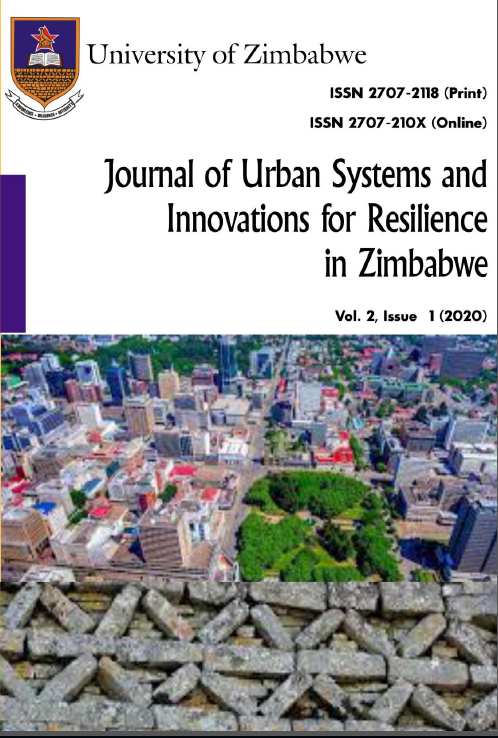COVID-19 and the Environmental Hygiene Question: Some Proposals for Urban Health Governance in Zimbabwe
Keywords:
parameterisation, governance, community, policy, self-regulation, regulation, financeAbstract
The purpose of this article is to revisit the concept of environmental hygiene in so far as COVID-19 has projected itself like a contagion disease of which surfaces have to be cleaned time and again if the infection is to be reduced. The article, in a way, parameterises the ingredients that resolve the urban health governance of which tangible (including materials and finance) and intangible resources (including a social will, attitude and community engagement and awareness raising) are the linchpins for success. Case studies of cities within and outside Zimbabwe are used in a bid to draw lessons towards constructing a governance and urban resilience model for the country. The model is a function of social, technical, political and environmental parameters. Regular cleaning of surfaces at nodes of high population concentrations including schools, universities, airports, road-ports, shopping malls, to name a few, is imperative. This article engages a review of the literature and reveals that, if not controlled, COVID-19 can negatively affect the environmental hygiene of the area and hence the need for strict government control measures and increased awareness at individual and institutional levels to promote environmental hygiene as well as curb the spread of the disease.




